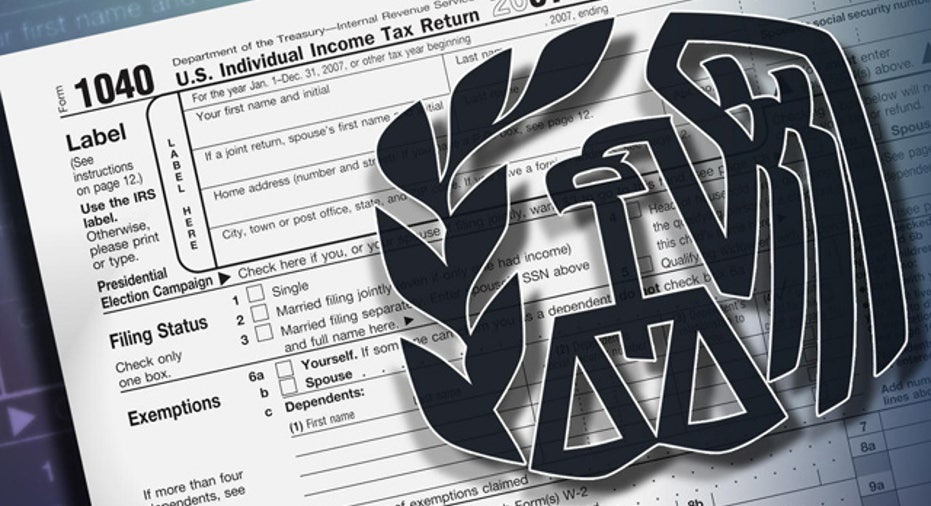Don’t Fall for the IRS’s Dirty Dozen Tax Scams

Tax season creates a prime environment for fraudsters to give taxpayers an even bigger headache.
Tax scams come in many forms including unscrupulous tax return preparers promising astronomical refunds and fake emails seeking personal information.
In an effort to protect consumers, the IRS publishes the most prevalent tax scams each season. Here is a breakdown of five of the “Dirty Dozen tax scams” for 2012:
Identity theft. In response to growing identity theft concerns, the IRS is revving up its internal reviews to spot false returns before refunds are issued.
Identity theft cases are among the most complex scams the IRS handles; thieves are getting smarter with their tactics. Scammers are using a legitimate taxpayer’s identity and personal information to file a tax return and claim a fraudulent refund.
There are several warning signs that your identity might have been compromised, including getting a notice from the IRS wondering why you filed two returns, or receiving a CP2000 letter stating that you neglected to include W2 wages from an employer you’ve never heard of before.
Identity thieves use your identity to obtain employment then file a fraudulent income tax return to secure a big refund.
If this happens to you, visit the IRS Special Identity Theft page
Phishing. These scams are typically carried out through an unsolicited email or a fake website that poses as a legitimate one (like a bank, retailer or government agencies) to lure consumers into providing valuable personal and financial information. Armed with this information, a criminal can commit identity theft or financial theft.
The IRS will never initiate a correspondence with a taxpayer via email or social media. A client of mine recently received an email supposedly from the IRS telling him he had a refund coming of $856. He asked if it was too good to be true. I had just received a similar email. I let him know it was a scam and advised him to forward it to phishing@irs.gov. Never click on any links provided in these emails or open any attachments.
For more information on phishing scams go to: Phishing Scams
Return preparer fraud. According to the IRS, more than half of U.S. taxpayers plan to use tax professionals to prepare their income tax returns. While most tax professionals are honest, there are many dishonest preparers out there. The advent of electronic filing and direct deposit of tax refunds have made it easy to change the data on a tax return. For example, tweaking the taxpayer’s bank account number to the preparer’s bank account number before processing the electronic filing.
Some unethical tax professionals promise exorbitant refunds or base their fees on a percentage of the refund they say they can obtain for you. Others will encourage you to put false information on the tax return in order to increase your refund, probably promising that you will not be audited. Maybe there are forms included in your tax return that you’ve never seen before with false data that will increase your refund. If this occurs, pick up your tax data and run screaming from the room. You do not want to be an accomplice to this type of criminal activity.
Tax professionals are now required to have a Preparer Tax identification number indicated on your copy of the tax return and have to sign any returns they complete. If they refuse to do so, you should go elsewhere to have your taxes prepared.
Hiding income offshore The days of the “numbered Swiss bank account” are over.
Since 2009, the IRS has been scrutinizing foreign trusts and individuals with foreign bank accounts. In fact, there is currently an amnesty program in place to come forward and declare earnings made and assets owned offshore. Many foreign governments are cooperating with the IRS in revealing the assets and earnings of American investors. On Schedule B – Interest and Dividend Income – you must truthfully answer the question about whether or not you have a foreign bank account. There are also requirements to disclose foreign assets. Check with your tax pro to make sure you are in compliance.
Having foreign bank accounts and owning foreign assets is not criminal, just make sure that you meet the reporting requirements. If you do not, know that the IRS’ penalties are severe and expensive—and could include jail time.
“Free money” from the IRS & tax scams involving Social Security. Mom probably told you there’s no such thing as a free lunch. She is right.
Fliers and advertisements for free money from the IRS, suggesting that taxpayers can file a return with little or no documentation are everywhere during tax season--don’t buy into it.
Scams regarding reparations for those descended from slaves, or scams stating that only foreign income is taxable or that the tax system is really voluntary and unconstitutional are bogus. They have all been shot down in the courts. In fact, actor Wesley Snipes and his accountants are currently serving time for propagating these types of scams.
And it’s not just refunds of income taxes that these con artists promise. Many have scams involving refunds of Social Security taxes. Don’t listen to them.
Bonnie Lee is an Enrolled Agent admitted to practice and representing taxpayers in all fifty states at all levels within the Internal Revenue Service. She is the owner of Taxpertise in Sonoma, CA and the author of Entrepreneur Press book, “Taxpertise, The Complete Book of Dirty Little Secrets and Hidden Deductions for Small Business that the IRS Doesn't Want You to Know.” Follow Bonnie Lee on Twitter at BLTaxpertise and at Facebook.



















